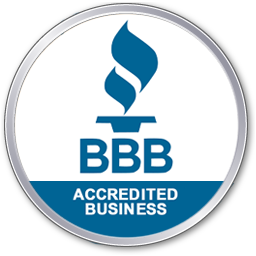Executive Summary
- A flood can impact a business in several ways, damaging property, halting operations, and harming profits.
- Business owners can work to prevent floods by having stormwater management systems installed on their property and having them maintained regularly.
- Steps business owners can take to prepare for floods include conducting a risk assessment, preparing evacuation plans, and having a business continuity plan.
- If a flood does affect a commercial property, a professional water damage restoration company can help minimize the effects and restore the property to the best possible condition.
“Expect the unexpected’ is one of the most valuable pieces of wisdom that applies to any facet of running a business. It’s especially important when it comes to weather-related events like floods. Preparing for the risk of flood damage often isn’t high on the priority list when running a business, but businesses that prepare for floods will be glad they did if a flood does happen.
Flooding can pose several risks for business owners, including damage to commercial buildings, inventory losses, revenue losses, and safety concerns. With this being the case, business owners must be proactive about protecting their business and operations against flooding.
Understanding the potential risks of flooding is important for protecting your business and your financial gains, especially in areas with heavy rainfall or areas with hard soil that doesn’t absorb water well. Although you never want to use it, flood preparedness can go a long way and save you many headaches.
Understanding Flood Risks for Business Owners
For many business owners, floods may be an afterthought. However, it’s important to have a plan in place, even if they’re not highly likely. Floods can happen anywhere, so it’s crucial that business owners factor in flood risks, especially if they’re located in a flood-prone area.
The most common risks associated with flooding are:
- Financial losses
- Property damage
- Damaged equipment
- Ruined inventory
- Operational disruption
- Revenue loss
In addition to the above risks, you’re also required to pay water damage restoration costs, affecting your bottom line. Although you can’t control the weather, there are precautions your business can take to prepare for floods and storm damage so you can prevent them from derailing your operations completely.
Assessing Vulnerabilities
Understanding any vulnerabilities in your property will allow you to address them before they lend themselves to flooding. Start by conducting a flood risk assessment of your property to understand how likely a flood is to affect your property. This assessment accounts for factors like:
- Business location
- Regional weather patterns
- Historical flood data
- Surrounding geography
After conducting a risk assessment, you should assess the health of your property and its flood preparedness. Consider factors like the slope of your property, how water might flow through it, and whether there are any structural concerns where water may be able to enter buildings.
Understanding these vulnerabilities is step one in preparing your property for potential floods. From there, you can begin to take additional measures, like making any changes to landscaping, installing stormwater management systems, or conducting building repairs.
How To Prepare Your Commercial Property for Floods
There are two keys to addressing the risks of floods—prevention and preparation. You can take steps to prevent flood damage by having systems for maintaining stormwater on your property.
Stay prepared and protected against floods year-round by taking the following steps:
- Install stormwater management systems like bioswales and catch basins
- Install a sump pump for commercial buildings with a basement
- Have catch basins and stormwater retention systems on your property maintained regularly
- Inspect your property for potential vulnerabilities that risk water intrusion
- Add flood-proofing to the building by applying a waterproof coating to the exterior walls
- Adjust landscaping to direct water down and away from structures and off of the property
- Explore options for flood or property damage insurance.
Of course, there are many situations where prevention isn’t enough to fully protect against the risk of floods. If your business ends up in a flood watch or warning zone, you should take these additional steps to prevent or minimize damage:
- Secure essential documents and equipment in a safe location
- Install flood barriers around the property
- Place sandbags around your property to barricade against the flow of water
- Remain in a safe location during the warning period with emergency supplies ready
- Monitor updates on floods and local river levels from local news sources and the National Weather Service
Business Continuity Planning
In addition to the damage from floods themselves, floods are also extremely disruptive to your business operations. Having a business continuity plan can soften the blow of a flood-related disruption and help you keep your operations moving while minimizing downtime.
Some things to consider in your business continuity plan include:
- The potential impacts of a flood on your property
- What communication methods will be in place to update employees, stakeholders, and authorities in the event of a flood
- How data is stored and protected against flood damage
- Whether alternate work locations can be used for essential operations
If water infiltration has been an issue with your property in the past, use previous incidents to determine whether there are areas for improvement in your response plan.
Water damage restoration is a complex process, and it requires an expert company to do it right. Alpha Environmental provides peace of mind with our expertise.Trust The Professionals for a Thorough Water Damage Restoration
Insurance and Financial Protection
Commercial property owners have a lot to consider when it comes to flood protection, like their property, their assets, and their profits, so insurance is important for financial protection.
However, businesses in areas vulnerable to flooding often face higher insurance costs or may not receive full coverage against flood damage in a standard insurance policy.
Supplemental insurance can be an excellent option for financial protection for businesses in risk areas. There are several insurance options available to commercial business owners for extra protection and support against flood damage. The most common options are:
- Commercial property insurance – This insurance covers damage to the physical structure of a commercial property, including the building itself and anything inside. Commercial property insurance can cover repairs to structures, replacement of equipment, and recovery of inventory.
- Flood insurance – Many standard property insurance policies do not cover flood damage. Supplemental flood insurance can help provide your business support against high costs if a flood does happen.
- Business interruption insurance – Sometimes called business income insurance, this insurance helps cover the loss of income and any operating expenses during a disruption to business, like a flood.
It’s a good idea for business owners to get in touch with an insurance professional to determine all of their options and which plans provide the most for their needs.
Emergency Response and Evacuation
In the event that a flood takes place, an urgent response is essential for ensuring the safety of your staff. Having an emergency response and evacuation plan will provide for the well-being of everyone on your property.
In a flood emergency, take the following steps:
- Follow the evacuation plan – This plan should highlight designated safe areas employees, customers, and visitors should go to in a flood event and what route they should take to get there. Staff should relocate to higher floors, rooftops, or nearby shelters.
- Ensure safety – Ensure that all staff are safe and accounted for. Avoid entering any areas that have flooded, and don’t put yourself in harm’s way.
- Contact emergency services – Alert emergency services of the flood, inform them of any safety concerns, and follow their advice. Request assistance for any injuries or support if necessary.
- Communicate – Companies should have a communication plan in place for updating staff on emergency service advice, evacuation plans, and alternative work arrangements. Maintain clear communication with all staff about necessary next steps throughout the process.
- Turn off utilities – Turn off main utilities like power and gas to prevent further risks if evacuation is required.
If your business manages hazardous materials or substances, it’s crucial to have a plan for these as well to prevent additional damage and environmental liability.
How your business plans to carry out these steps should be established before a potential flood event occurs so that there is no confusion. The ability to take an urgent response makes all the difference in protecting your employees and property.
Post-Flood Recovery and Restoration
Being prepared for a flood is essential. However, there are instances where even the best preparation methods can’t prevent a flood event. If a flood does affect your property, it’s important that you have a plan of action in place to ensure safety and minimize losses.
After a flood event, take the following steps:
- Mitigate the damage – If safe to do so, mitigate damage by moving equipment and inventory away from water-damaged areas.
- Document all damage – Documentation is crucial for an insurance claim. Be sure to take pictures of the full scope of the damage and have documentation for damaged stock or equipment.
- Contact a professional restoration service – The water damage restoration process is extremely detailed and requires a professional eye to ensure it’s done properly. Contacting a professional service will ensure all water is removed and protect your commercial property from additional damage.
Unless the water damage is minor, it’s best to choose professional services for a restoration over attempting to address it yourself. Professional water damage restoration services will extract the water, conduct a thorough mold inspection, assess the full extent of the damage, and repair any signs of water damage restoration left behind.
Defend Your Business Against the Risks of Flooding
Business owners face several risks when it comes to flooding, including the potential for lost revenue, property damage, and suspended operations. With the many possible risks, it’s crucial that business owners have contingency plans in place. In a rainy area like Portland, it’s even more important for businesses to make flood preparedness a priority.
For support with stormwater management, turn to Alpha Environmental. We’ll support you with both preventing and responding to floods. From helping you maintain your stormwater management systems to providing a full water damage restoration, we’ll help you minimize the impacts of flooding on your property.
Contact us today for support with stormwater management or water damage restoration in Portland or surrounding areas in Oregon.




